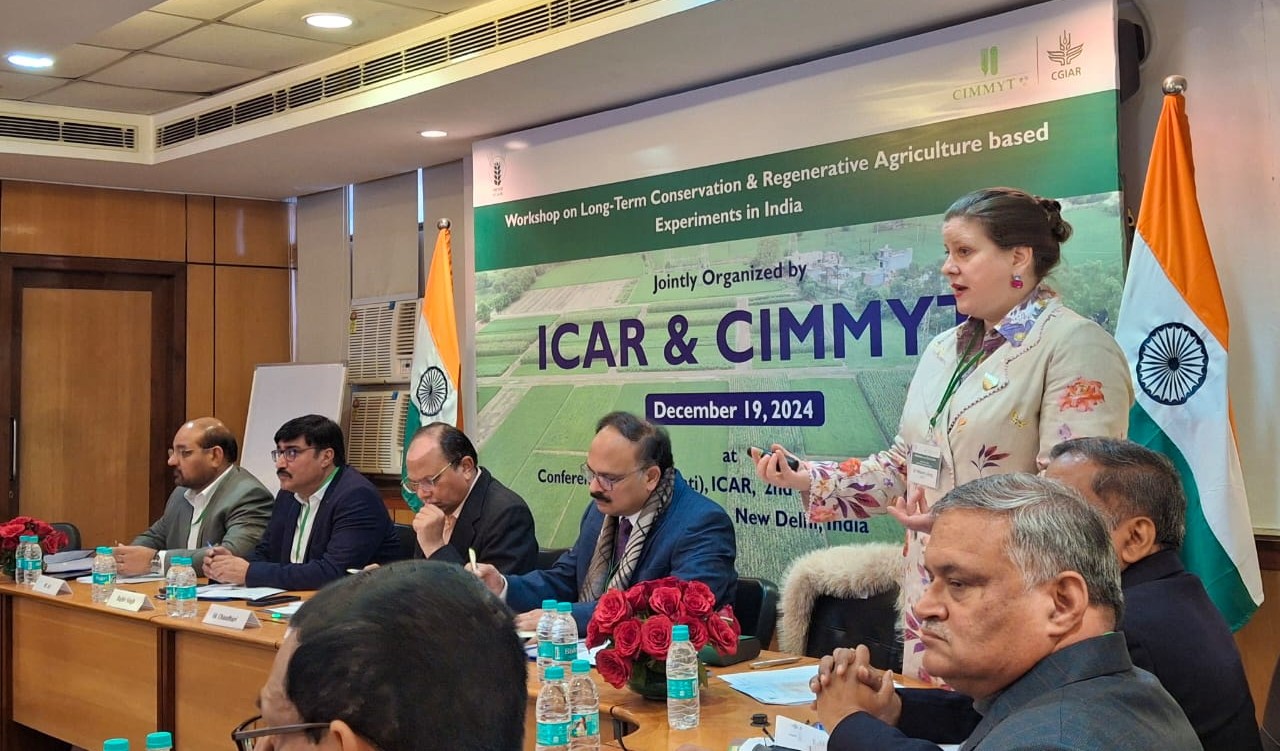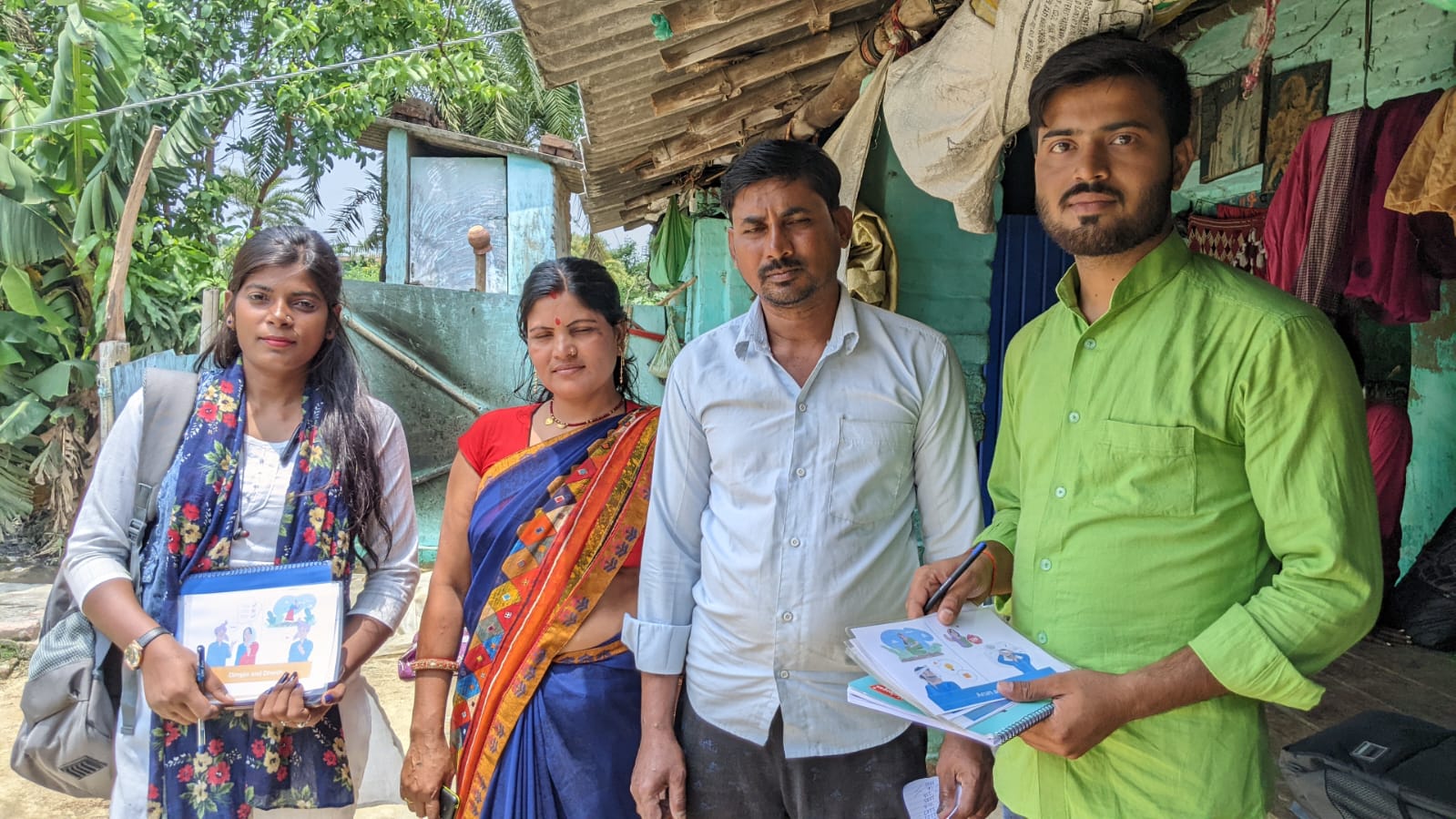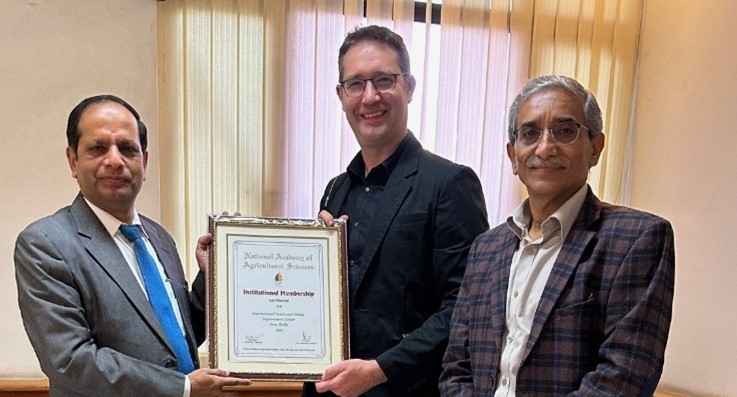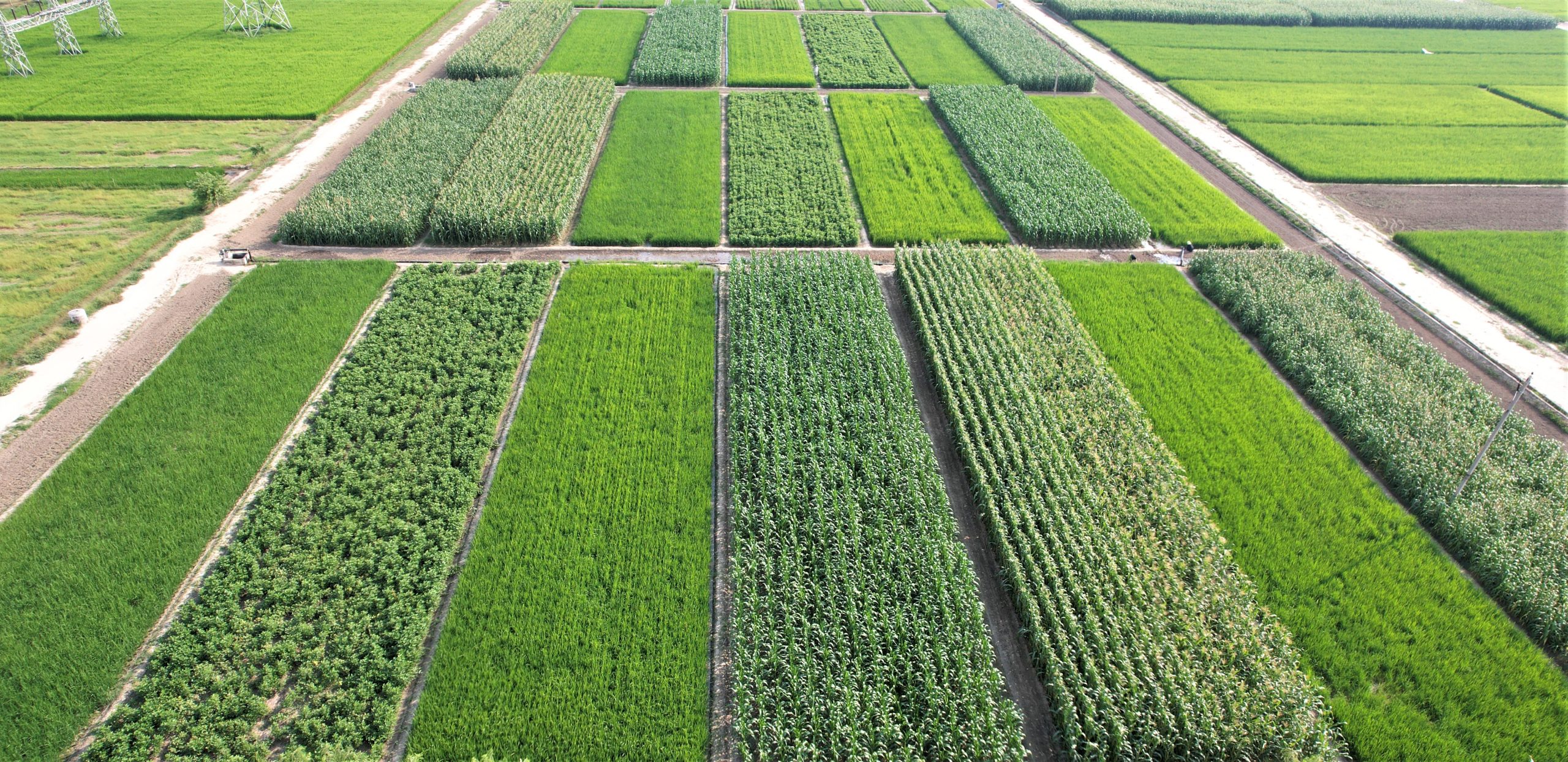
CIMMYT and the Indian Council of Agricultural Research (ICAR), New Delhi, co-hosted a one-day workshop on Long-Term Experiments (LTEs) in agriculture, focusing on Conservation Agriculture (CA) and Regenerative Agriculture (RA) practices. The workshop aimed to explore strategies for researchers from the national systems to come together with CIMMYT colleagues and identify ways to increase productivity, improve food security, strengthen climate resilience of agricultural systems, and enable Indian farmers and researchers to take advantage of innovations and new research in LTEs.
The event brought together leaders from ICAR’s research divisions and institutes – including Natural Resource Management (NRM), Indian Agriculture Research Institute (IARI), Central Soil Salinity Research Institute (CSSRI) and the Research Complex for the Eastern Region (RCER) – with partner CGIAR centres CIMMYT, ICRISAT and IRRI, and others from donor agencies, private agricultural research organizations and the Borlaug Institute for South Asia (BISA).
The event was chaired by Dr Suresh Kumar Chaudhari, Deputy Director General for Natural Resource Management at ICAR. In his remarks, Dr Chaudhari highlighted the critical role of LTEs in understanding evolving agri-food systems. He emphasized the value of revisiting past research with fresh perspectives, taking into account new knowledge, and taking a long-term, strategic view of our agricultural research portfolios.
Dr. Prasanna Boddupalli, Regional Director for South Asia – CIMMYT, highlighted the importance of LTEs in generating knowledge for sustainable practices. He expressed hope that the workshop would inspire innovative ideas, such as the use of climate-resilient crop varieties like drought- and heat-tolerant maize, and the use of predictive analytics and machine learning to identify emerging trends
Dr Alison Laing chaired the workshop. She outlined the objectives of the workshop and emphasize the importance of collaborative discussions in formulating guidelines and recommendations for ongoing and future experiments on CA and RA. She also highlighted the need for resource mobilization and contributions from the participating institutions.
The opening session featured presentations by senior scientists, including Dr M.L. Jat (ICRISAT), Dr Rajbir Singh (ICAR-NRM ADG), Dr Rakesh Kumar (ICAR-RCER), Dr Madhu Choudhary (ICAR-CSSRI), Dr H.S. Jat (ICAR-IIMR) and Dr C.M. Parihar (ICAR-IARI). They provided insights into ongoing LTEs on CA and RA at their research institutions, including key research foci, discussed challenges and opportunities, and stressed the importance of ensuring the continuity of LTEs in the face of shifting priorities and donor fatigue.
All participants then engaged in group discussions to address emerging priorities, funding challenges and barriers to implementation, and to identify ways in which LTEs can generate data to demonstrate the long-term impacts of agricultural practices and the performance of different cropping systems. These breakout sessions culminated in a plenary session where participants consolidated key issues and reached consensus on actionable recommendations.
Dr Laing concluded the workshop by announcing that the recommendations would be compiled into a joint document to be submitted to ICAR-NRM, providing a roadmap for strengthening LTEs in India.
In his vote of thanks, Dr Mahesh Gathala (CIMMYT) commended the participants for their valuable contributions to the objectives of the workshop’s. He expressed confidence in the collective commitment of scientists and institutions – public and private – to the advancement of LTEs and their critical role in strengthening agricultural and food system science and research.

 Capacity development
Capacity development 
